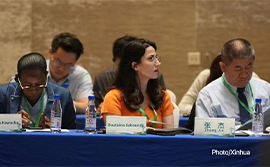

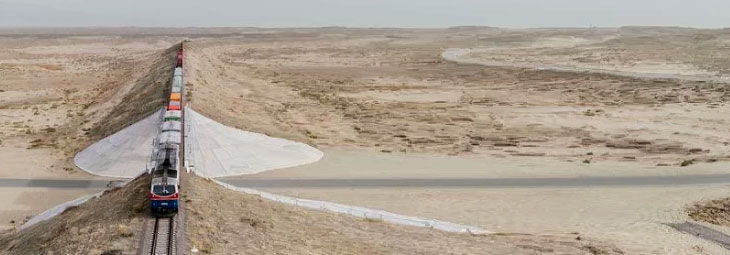
After receiving training from Chinese experts, Vili, a farmer on Santiago Island in Cape Verde, learned to identify soil nutrients, which resulted in increased crop yields. He also learned to enrich the soil by using goat manure and crop straw. He said, "The money saved from not buying fertilizer can be invested in other farm improvements." Vili participated in a soil management and pest control training organized by the Food and Agriculture Organization of the United Nations (FAO), as part of the FAO-China South-South Cooperation program in Cape Verde. This program provides agricultural technical assistance from Chinese experts to improve the country's food production and nutrition security.
From June 12 to 14, 2024, the China-Africa Agricultural Technology Cooperation Seminar, hosted by the Food and Agriculture Organization of the United Nations (FAO) and the Chinese Academy of Agricultural Sciences, was held in Sanya, Hainan. The seminar aimed to deepen agricultural technology cooperation between China and Africa and promote the modernization of African agriculture. At the seminar, Ye Anping, Director of the FAO South-South and Triangular Cooperation Division, explained that through the aforementioned program, many Chinese experts have been working in Africa for extended periods, providing technical assistance in areas such as food production, plant protection, rural energy, and agricultural mechanization. "Many Chinese agricultural technologies are straightforward, comprehensible, practical, and cost-effective, making them highly beneficial for Africa," he noted.
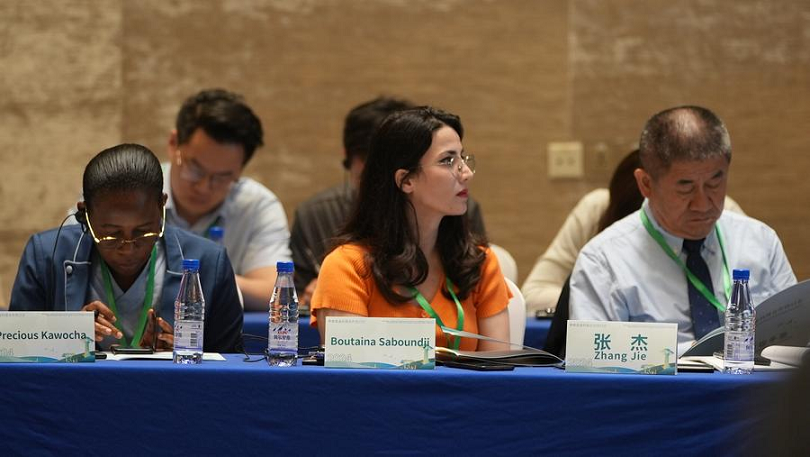
Photo of the China-Africa Agricultural Technology Cooperation Seminar held in Sanya, Hainan, on June 12. [Photo/Xinhua]
The empowering stories of China-Africa agricultural technology cooperation boosting African food production continue to unfold. The Chinese Academy of Agricultural Sciences has distributed over 1,000 samples of Green Super Rice to nine African countries, resulting in a cumulative promotion area of 57,000 hectares, where yields are over 20% higher than local varieties. Additionally, the Chinese Academy of Tropical Agricultural Sciences has promoted the "Huannan No. 5" cassava in Africa, which yields four times more than local varieties.
Felix Dapare Dakora, former president of the African Academy of Sciences, dreams of a future where no African child goes to bed starving and everyone has access to nutritious food. "Learning from China is the right path. When you learn from those who share similarities with you, the chances of success are higher," he said. China once faced food shortages but ultimately ensured food security through continuous technological innovation, a success story that Africa aspires to replicate. "Collaborative research, germplasm resource exchange, and joint capacity building will strongly promote technological innovation and agricultural development," noted Laila Baranaba Lokosang, Senior Technical Advisor at the African Union Commission. By leveraging the new platform of the China-Africa Agricultural Technology Innovation Alliance, China and Africa's agricultural research forces will focus on more practical issues, and obtain solutions.
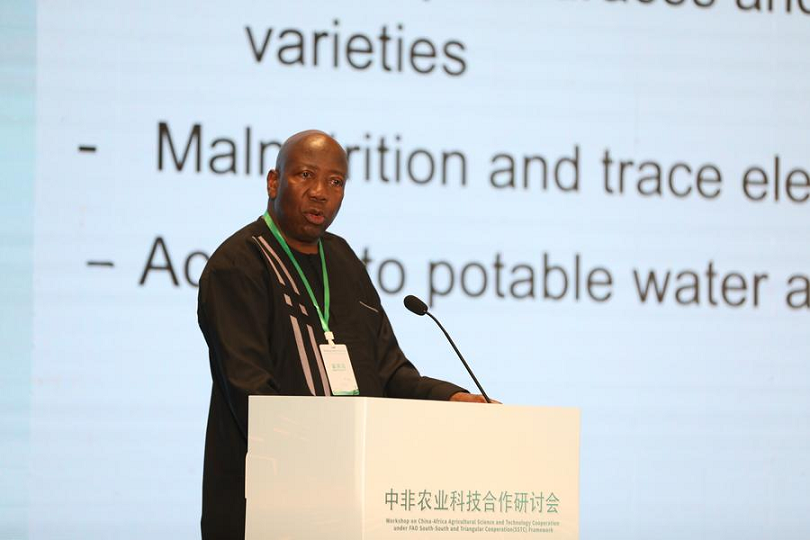
Felix Dapare Dakora, former president of the African Academy of Sciences, delivering a speech at the China-Africa Agricultural Technology Cooperation Seminar. [Photo/Xinhua]
At the seminar, representatives from the Chinese Academy of Agricultural Sciences and various provincial agricultural research institutes presented their institutions' research strengths and latest achievements, covering a wide range of topics from staple crops to economic crops, and from breeding and cultivation to post-harvest processing. Participants from countries such as Burkina Faso highlighted that many African nations are facing severe drought conditions and urgently need drought-resistant crops to tackle the challenges of climate change. Chinese experts responded positively, introducing drought-resistant varieties of maize, millet, sweet potatoes, and sorghum, as well as new technologies such as "dryland rice" cultivation that have been demonstrated and promoted in China. They expressed their willingness to further cooperate on these fronts.
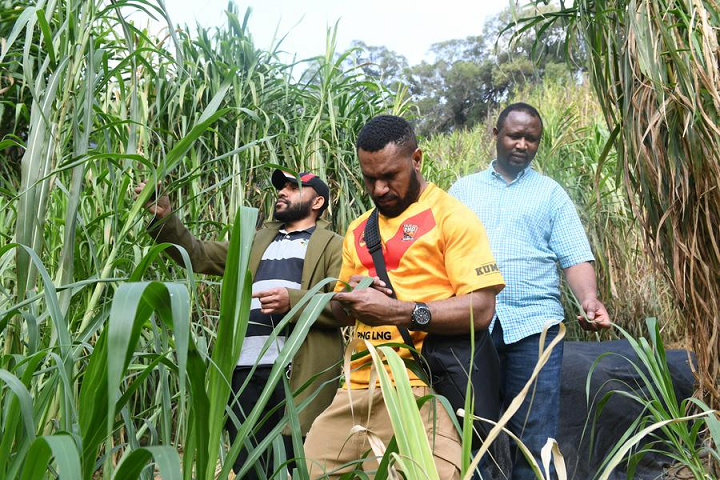
On March 28, 2024, at Fujian Agriculture and Forestry University in Fuzhou, students from Rwanda and Papua New Guinea observed the growth of fungus grass in the "International Fungus Grass Garden" . [Photo/Xinhua]
Some African participants also emphasized that the cooperation should be mutual and beneficial. Chiedozie Egesi, Director of the National Root Crops Research Institute of Nigeria, stated that by exchanging germplasm resources, they hope to contribute to cassava breeding innovation in China and support the development of China's cassava industry.
China and Africa are moving towards each other, with more technological cooperation projects being implemented. Soon, experts from the Chinese Academy of Tropical Agricultural Sciences will depart for Nigeria, Tanzania, and Côte d'Ivoire to engage in collaborative exchanges with local agricultural departments, research institutions, and enterprises. During this period, the "China Hainan-Nigeria Umudike Cassava Joint Laboratory" will be inaugurated, and joint efforts will be made to survey Nigeria's unique cassava and other tuber crop germplasm resources.
Source:
<https://www.yidaiyilu.gov.cn/p/0E121HJK.html>;<https://www.yidaiyilu.gov.cn/p/0PM7SPC3.html>
Edited and Translated by Lu Yufei